Related Research Articles
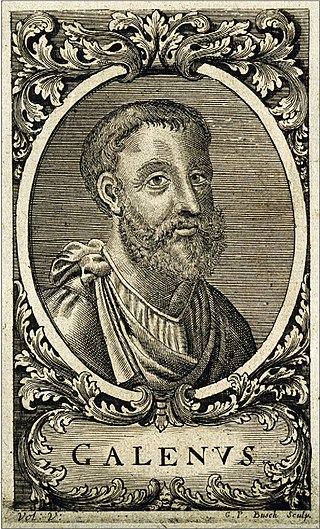
Aelius Galenus or Claudius Galenus,often anglicized as Galen or Galen of Pergamon,was a Roman and Greek physician,surgeon and philosopher. Considered to be one of the most accomplished of all medical researchers of antiquity,Galen influenced the development of various scientific disciplines,including anatomy,physiology,pathology,pharmacology,and neurology,as well as philosophy and logic.
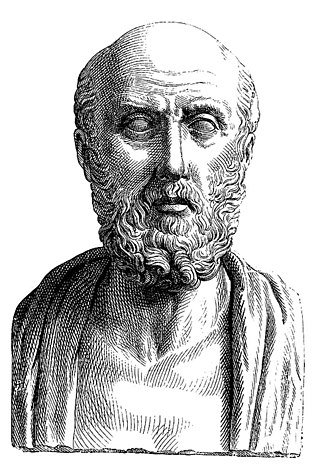
Hippocrates of Kos,also known as Hippocrates II,was a Greek physician of the classical period who is considered one of the most outstanding figures in the history of medicine. He is traditionally referred to as the "Father of Medicine" in recognition of his lasting contributions to the field,such as the use of prognosis and clinical observation,the systematic categorization of diseases,or the formulation of humoral theory. The Hippocratic school of medicine revolutionized ancient Greek medicine,establishing it as a discipline distinct from other fields with which it had traditionally been associated,thus establishing medicine as a profession.

The Hippocratic Oath is an oath of ethics historically taken by physicians. It is one of the most widely known of Greek medical texts. In its original form,it requires a new physician to swear,by a number of healing gods,to uphold specific ethical standards. The oath is the earliest expression of medical ethics in the Western world,establishing several principles of medical ethics which remain of paramount significance today. These include the principles of medical confidentiality and non-maleficence. As the seminal articulation of certain principles that continue to guide and inform medical practice,the ancient text is of more than historic and symbolic value. It is enshrined in the legal statutes of various jurisdictions,such that violations of the oath may carry criminal or other liability beyond the oath's symbolic nature.
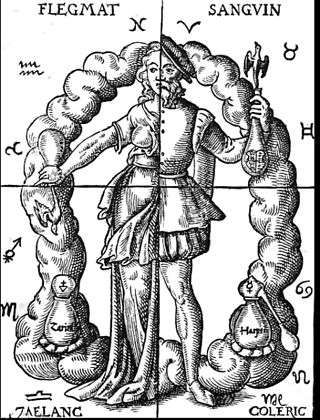
Humorism,the humoral theory,or humoralism,was a system of medicine detailing a supposed makeup and workings of the human body,adopted by Ancient Greek and Roman physicians and philosophers.

The Hippocratic Corpus,or Hippocratic Collection,is a collection of around 60 early Ancient Greek medical works strongly associated with the physician Hippocrates and his teachings. The Hippocratic Corpus covers many diverse aspects of medicine,from Hippocrates' medical theories to what he devised to be ethical means of medical practice,to addressing various illnesses. Even though it is considered a singular corpus that represents Hippocratic medicine,they vary in content,age,style,methods,and views practiced;therefore,authorship is largely unknown. Hippocrates began Western society's development of medicine,through a delicate blending of the art of healing and scientific observations. What Hippocrates was sharing from within his collection of works was not only how to identify symptoms of disease and proper diagnostic practices,but more essentially,he was alluding to his personable form of art,"The art of true living and the art of fine medicine combined." The Hippocratic Corpus became the foundation upon which Western medical practice was built.

The treatise On Ancient Medicine is perhaps the most intriguing and compelling work of the Hippocratic Corpus. The Corpus itself is a collection of about sixty writings covering all areas of medical thought and practice. Traditionally associated with Hippocrates,the father of Western medicine,philological evidence now suggests that it was written over a period of several centuries and stylistically seems to indicate that it was the product of many authors dating from about 450–400 B.C.

Helen King is a British classical scholar and advocate for the medical humanities. She is Professor Emerita of Classical Studies at the Open University. She was previously Professor of the History of Classical Medicine and Head of the Department of Classics at the University of Reading.
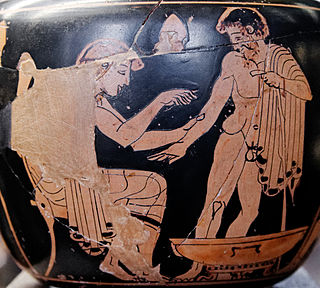
Ancient Greek medicine was a compilation of theories and practices that were constantly expanding through new ideologies and trials. The Greek term for medicine was iatrikē. Many components were considered in ancient Greek medicine,intertwining the spiritual with the physical. Specifically,the ancient Greeks believed health was affected by the humors,geographic location,social class,diet,trauma,beliefs,and mindset. Early on the ancient Greeks believed that illnesses were "divine punishments" and that healing was a "gift from the Gods". As trials continued wherein theories were tested against symptoms and results,the pure spiritual beliefs regarding "punishments" and "gifts" were replaced with a foundation based in the physical,i.e.,cause and effect.
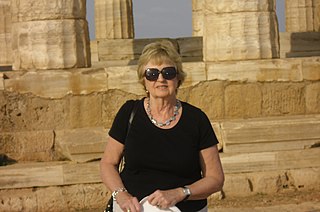
Dame Averil Millicent Cameron,often cited as A. M. Cameron,is a British historian. She writes on Late Antiquity,Classics,and Byzantine Studies. She was Professor of Late Antique and Byzantine History at the University of Oxford,and the Warden of Keble College,Oxford,between 1994 and 2010.
Elaine Fantham was a British-Canadian classicist whose expertise lay particularly in Latin literature,especially comedy,epic poetry and rhetoric,and in the social history of Roman women. Much of her work was concerned with the intersection of literature and Greek and Roman history. She spoke fluent Italian,German and French and presented lectures and conference papers around the world—including in Germany,Italy,the Netherlands,Norway,Argentina,and Australia.
The Galenic corpus is the collection of writings of Galen,a prominent Greek physician,surgeon and philosopher in the Roman Empire during the second century CE. Several of the works were written between 165–175 CE.
On the Nature of Man is a work in the Hippocratic Corpus. On the Nature of Man is attributed to Polybus,the son in law and disciple of Hippocrates,through a testimony from Aristotle's History of Animals. However,as with the many other works of the Hippocratic Corpus,the authorship is regarded as dubious in origin.
Ann Ellis Hanson is an American papyrologist and historian who holds the position of senior research scholar and lecturer in the Department of Classics at Yale University.

Andrés Piquer (1711–1772) was a Spanish physician,philosopher,logician,writer and author. During the eighteenth century,a critique and re-evaluation of the Hippocratic Corpus within Spanish universities was pushed by Galenist scholars. Piquer contributed to this analysis of the corpus and served as a philosopher and doctor to the Kings Ferdinand VI and Charles III.
Modern understanding of disease is very different from the way it was understood in ancient Greece and Rome. The way modern physicians approach healing of the sick differs greatly from the methods used by early general healers or elite physicians like Hippocrates or Galen. In modern medicine,the understanding of disease stems from the "germ theory of disease",a concept that emerged in the second half of the 19th century,such that a disease is the result of an invasion of a micro-organism into a living host. Therefore,when a person becomes ill,modern treatments "target" the specific pathogen or bacterium in order to "beat" or "kill" the disease.
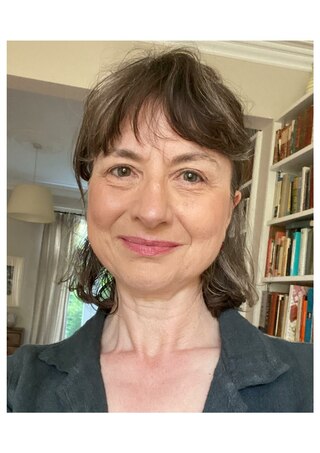
Emily Joanna Gowers,is a British classical scholar. She is Professor of Latin Literature at the University of Cambridge and a Fellow of St John's College,Cambridge. She is an expert on Horace,Augustan literature,and the history of food in the Roman world.
Alexia Petsalis-Diomidis is Lecturer in Classics at the University of St Andrews where she researchers the cultural history of objects and spaces. She is an expert on the reception of Classical material in Europe in the eighteenth and nineteenth centuries.
Alice-Mary Talbot is an American Byzantinist. She is director of Byzantine studies emerita,Dumbarton Oaks Research Library and Collection.
Iain Malcolm Lonie was a British-born New Zealand poet and a historian of ancient Greek medicine. His academic career was spent between New Zealand,Australia and England. He read classics at the University of Cambridge,lectured at universities in both Australia and New Zealand,worked as a research fellow for the Wellcome Trust,and wrote a definitive textbook on the Hippocratic texts On Generation,On the Nature of the Child and Diseases IV.
Laurence Totelin (FRHistS) is a historian of Greek and Roman Science,Technology,and Medicine. She is Professor of Ancient History at Cardiff University.
References
- 1 2 3 4 5 6 7 8 Neale, Alison, ed. (2003). International who's who of authors and writers 2004 (19th ed.). London, England: Europa Publications, Taylor & Francis Group. p. 119. ISBN 1857431790.
- ↑ "Elizabeth Mary Craik - University of St Andrews". risweb.st-andrews.ac.uk.
- ↑ Craik, Elizabeth M. (1998). Hippocrates: Places in Man. Clarendon Press. ISBN 9780198152279.
- 1 2 Craik, Elizabeth M. (2006). Two Hippocratic treatises on sight and on anatomy. Leiden: Brill. p. vii. ISBN 9789004153967.
- ↑ Craik, Elizabeth M. (2015). The 'Hippocratic' Corpus Content and Context. London: Routledge. p. x. ISBN 9781138021716.